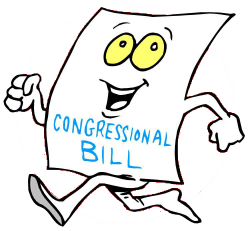As we predicted earlier this week, the Senate and President Obama did in fact approve the tax extenders for both individuals and businesses. The Tax Increase Prevention Act reinstates expired 2013 tax breaks as well as extends key tax provisions that were scheduled to expire at the end of 2014. Despite the overall positive news, the new law only provides a temporary one year solution. These same tax breaks are now set to expire on December 31, 2014.
The Section 179 Election & Bonus Depreciation Reinstated to 2013 Levels
The maximum Section 179 deduction is once again $500,000. What’s more, the bonus depreciation deduction, which expired all together in 2014, has be reinstated to 50% of the cost of eligible property.
As a refresher, the Section 179 deduction applies to the purchase of new and used property, while bonus depreciation is only applicable to new purchases. Furthermore, a business must carry-forward a Section 179 deduction in excess of a net operating loss, whereas bonus depreciation may still be deducted in the current year.
Other key provisions that were reinstated include:
– Research and experimentation credit (Code Sec. 41);
– Work opportunity tax credit (Code Sec. 51, Code Sec. 52);
– Special 100% gain exclusion for qualified small business stock (Code Sec. 1202);
– Reduction in S corp recognition period for built-in gains tax (Code Sec. 1374)
Planning for the 2015 tax year
As expected, Congress elected to pass a temporary solution. As such, we will be in in the same situation next December. Thus, businesses will likely have to wait it out again in terms of tax planning for 2015 purchases.
Managing income and expenses
Most businesses that are pass-through entities can easily manage their income and deductible expenditures through year-end. If your business is relatively stable or softening, consider deferring income into next year and accelerating deductible expenses into this year. Alternatively, if your business is flourishing and you expect to be in a higher tax bracket in 2015, accelerate income into 2014 and defer expenses to 2014. In this regard, more income will be taxed this year at lower rates than in 2015, when your tax bracket will be higher.
C Corporation tax liability management
If you own a closely held C corporation, you may want to pay bonuses and make profit-sharing contributions in 2014 if you have had a profitable year. Making these decisions now will help to reduce your corporate income tax. In addition, you may also avoid exceeding the $250,000 threshold that triggers a 20% accumulated earnings tax penalty.
More questions? Browse answers or ask business tax questions online.
Related Articles
->Small Business Tax Extenders Likely To Be Approved
->Important Year-End Tax Planning Tips For Small Businesses
->Report: The Sales Taxman Cometh, Beware Accountants And Clients
->Is Your Small Business Getting Enough Value From Your CPA?
->Preparing For Rising Business Costs In 2015
->Should We Use QuickBooks Online Or Xero For Bookkeeping?
->Tax Deductions For The Self Employed
->Small Businesses Should Take Note Of The R&D Tax Credit


